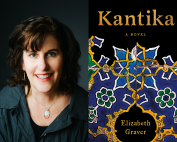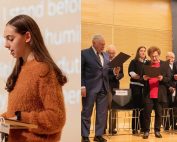Ladino Day at the University of Washington
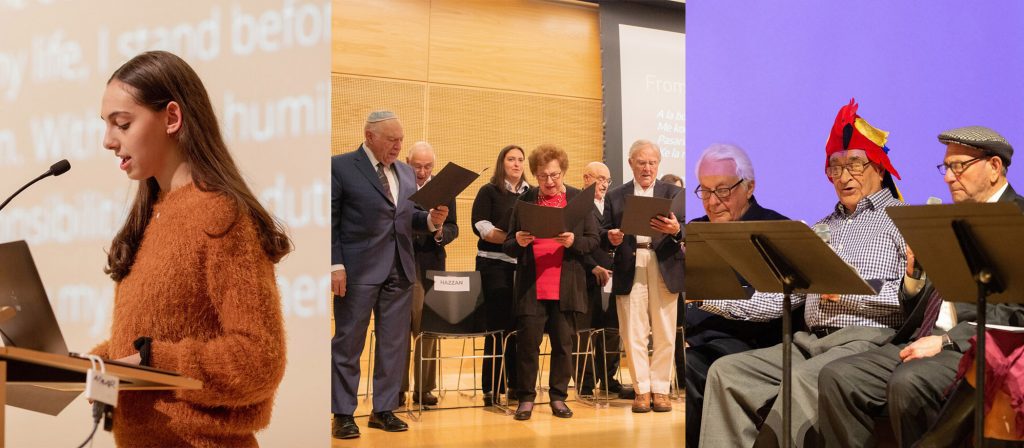
Since its inception in 2013, Ladino Day at the University of Washington has become a hallmark of campus and virtual programming where community members, students, faculty, and scholars come together to discuss the past, present, and future of Ladino.
Past Ladino Day programs at the University of Washington have included lectures from national and international scholars of Sephardic Studies and the Ladino language; performances by professional musicians and Seattle-area hazzanim (cantors); film screenings; sharing refranes, or Ladino sayings; and involvement from participants young and old. A group of the last generation of native Ladino speakers, the Ladineros, always engage the audience by telling stories or singing songs in Ladino. In honor of the first Ladino Day both the mayor of Seattle and the governor of Washington State issued public declarations in support of the initiative.
Recent Programs
Ladino Day 2024: “The Familiar” with Fantasy Author Leigh Bardugo
Bestselling fantasy author Leigh Bardugo ("Shadow and Bone") discusses her new novel, “The Familiar,” with faculty member Canan Bolel in Ladino Day 2024 at the University of Washington.
Ladino Day 2023: “Kantika,” A Sephardic Novel by Elizabeth Graver
In the 11th annual Ladino Day, author Elizabeth Graver discusses her new novel, “Kantika,” a moving, multi-generational saga inspired by Graver’s grandmother.
Ladino Day 2022: The Future of Ladino
On the tenth anniversary of Ladino Day, UW's Sephardic Studies Program presents four experts from different generations, all working to revitalize Ladino (Judeo-Spanish), the traditional language of Sephardic Jews.
Why celebrate Ladino Day?
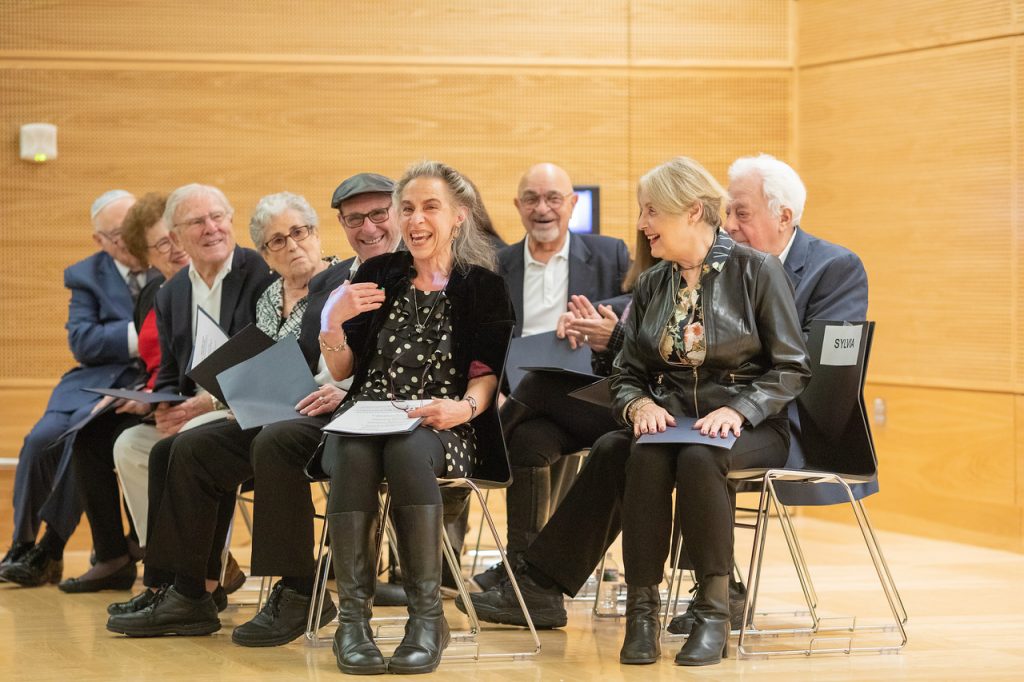
Ladino Day is an educational and celebratory program that centers the Ladino (Judeo-Spanish) language through story and song, and with lectures and reflections from scholars, activists, and community members.
Due to demographic displacement, the destruction wrought by the Holocaust, and the pressures of assimilation, the number of native Ladino speakers has declined rapidly in the last 100 years: UNESCO has even designated Ladino an endangered language.
As the last generation of native Ladino speakers leaves us, and the present generations no longer have immediate access to their linguistic heritage, we face a major turning point and a choice: relegate to oblivion the Ladino language and the world it represents, or make a concerted effort to preserve and disseminate that legacy for future generations. Through Ladino Day, the Sephardic Studies Program opts for the latter path.
Biva la lingua de Ladino!
Ladino Day in the headlines
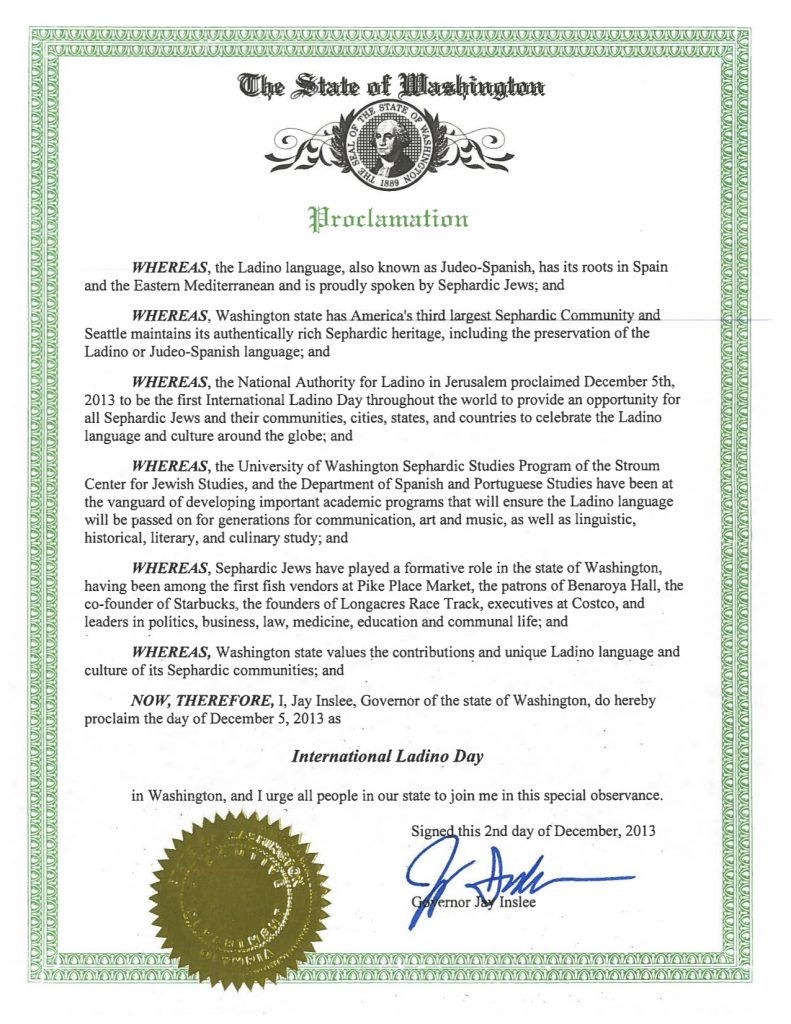 In recognition of the first UW Ladino Day, Governor Jay Inslee proclaimed December 5th, 2013 International Ladino Day throughout the state of Washington in alignment with the date set by the National Authority for Ladino in Jerusalem. Since then, local, national, and international partnerships have brought global renown to Ladino Day at the University of Washington: the program has made headlines from Seattle to New York, and has attracted media attention in Turkey, Israel, and beyond.
In recognition of the first UW Ladino Day, Governor Jay Inslee proclaimed December 5th, 2013 International Ladino Day throughout the state of Washington in alignment with the date set by the National Authority for Ladino in Jerusalem. Since then, local, national, and international partnerships have brought global renown to Ladino Day at the University of Washington: the program has made headlines from Seattle to New York, and has attracted media attention in Turkey, Israel, and beyond.
Ladino Day media coverage >
Start learning Ladino
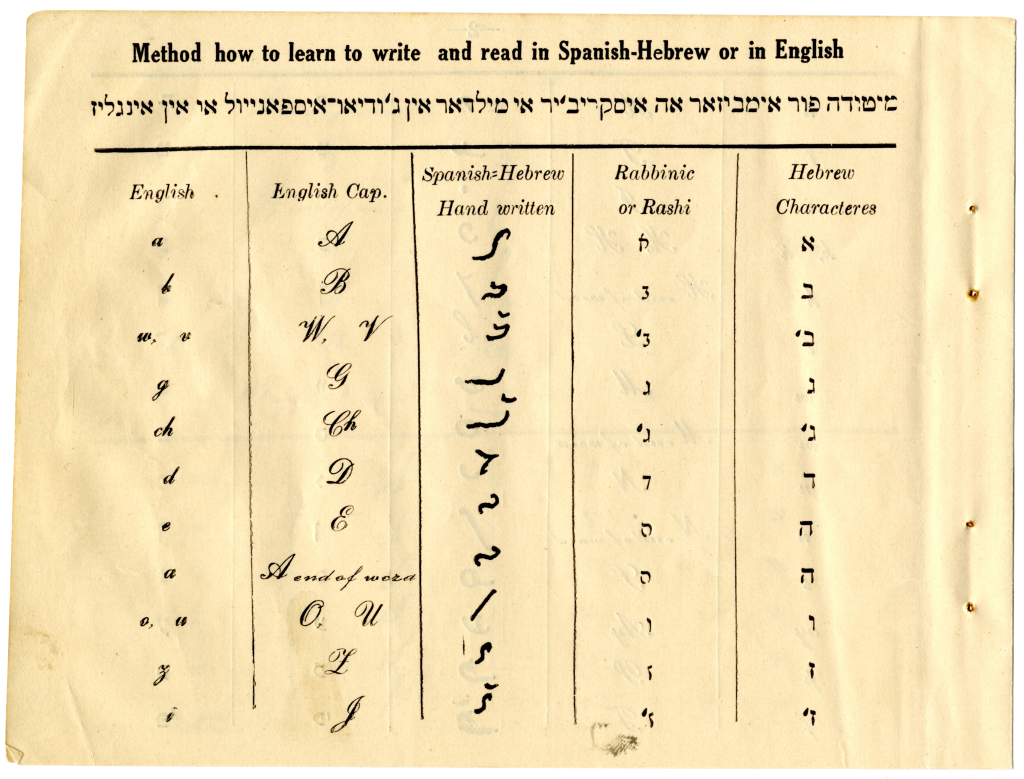
Page from “Livro de Embezar las linguas Ingleza i Yudish,” a guidebook for Sephardic immigrants, with side-by-side comparison of the Sephardic (“Spanish”) Hebrew alphabet (soletreo), standard Hebrew alphabets (rashi and block type), and the Latin alphabet. (ST0007, courtesy Isaac Azose)
There’s no need to wait until our next Ladino Day to begin your Ladino language journey. Visit our Digital Classroom, which includes podcasts, video recordings, and essays, where you can can hear and read muestra lingua (“our language”) for yourself. Then, explore “Ladino Reflections,” a collection of student and faculty writing about learning and teaching an endangered Jewish language in the twenty-first century.
Learn Ladino >


